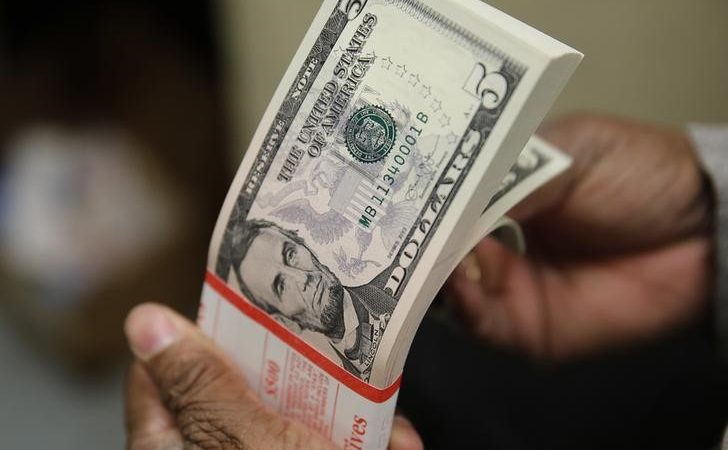
Dollar falters as U.S. bond yields slip; yen edges higher
By Masayuki Kitano
SINGAPORE (Reuters) – The dollar slipped on Monday, losing some of its recent momentum as U.S. bond yields sagged, although moves were tempered by caution ahead of Federal Reserve Chairman Jerome Powell’s first congressional testimony.
The dollar index, which measures the greenback against a basket of six major rivals, eased 0.1 percent to 89.775 (DXY). It gained nearly 0.9 percent last week and pulled away from a three-year low near 88.25 set on Feb. 16.
A view that the dollar’s sell-off had been overdone, plus minutes from the Fed’s January rate-setting meeting that offered a relatively upbeat tone, helped give the dollar a lift last week.
The focus this week is on Powell’s congressional testimony on monetary policy and the economy.
“There is no incentive for Powell to pre-signal any shift in the Fed narrative,” Stephen Innes, head of trading in Asia-Pacific for Oanda in Singapore, said in a note.
“There is little to suggest this new Fed chair will be any less dependent on economic data than his predecessor, so the jury should remain out about a quicker pace of interest rate normalization,” Innes added.
Powell will testify on the central bank’s semi-annual report on monetary policy and the economy on Tuesday, Feb. 27 before the U.S. House of Representatives’ Financial Services Committee.
The committee had previously scheduled his appearance for Wednesday, Feb. 28. The hearing will be held at 10 a.m. (1500 GMT), said the committee, which did not provide a reason for the change.
Against the yen, the dollar eased 0.3 percent to 106.61 yen <jpy=>. There was talk of dollar-selling by Japanese exporters ahead of the month-end.</jpy=>
Satoshi Okagawa, senior global markets analyst for Sumitomo Mitsui Banking Corporation in Singapore, said the dollar was weighed down by a drop in the U.S. 10-year Treasury yield.
The U.S. 10-year Treasury yield eased a tad in Monday’s Asian trade to 2.866 percent (US10YT=RR), continuing a slip from the four-year high of 2.957 percent reached on Wednesday.
Okagawa said the Fed chief will probably be wary of sending a hawkish message, which could unsettle bond and equity markets.
“He probably doesn’t need to project any dovish image. But at a time when share prices have been unstable, he also doesn’t need to say anything that sounds especially hawkish on interest rates,” Okagawa said.
The euro firmed 0.1 percent to $1.2308 (EUR=), after falling 1 percent last week as market players turned cautious on the euro ahead of the Italian general election on March 4.
A German Social Democrats’ poll of its members on joininganother coalition government with Chancellor Angela Merkel’s conservatives is also due that day, two big political risk events for markets.
Sterling edged up 0.2 percent to $1.3999 <gbp=d3>.</gbp=d3>
The pound was supported after the Bank of England’s Deputy Governor Dave Ramsden was quoted by the Sunday Times, in an interview released on Saturday, saying interest rates might need to rise sooner than he previously thought if wages grow as fast the central bank expects in the early part of 2018.


